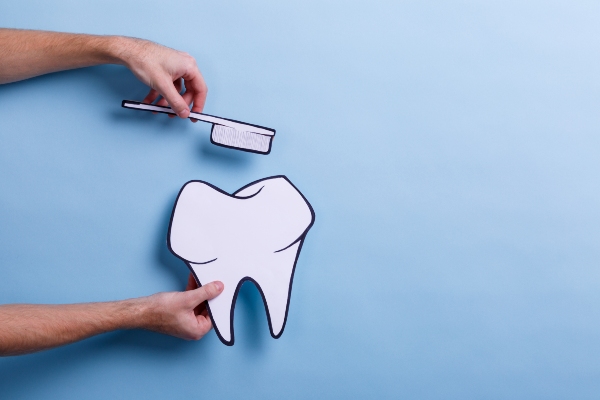Weighing the Pros and Cons of Dental Crowns

Dental crowns have grown in popularity over time. Dentists all over recommend that dental crowns be used for patients with decaying or eroding teeth. The simple procedure has been offered for years and with good reason. Relatively, the procedure is beneficial. However, there are downsides to almost everything. Knowing what the pros and cons of dental crowns are can be quite beneficial to someone considering their options.
Today, we will go over what the benefits of dental crowns are while also addressing the negative aspects of them as well. It’s important to know and understand both sides of a pretty common procedure.
Pros of dental crowns
Restoration
While this may seem like an obvious benefit of dental crowns, some may not realize how beneficial they can be. Dental crowns provide a dying tooth with a chance to restore itself through a crown. A dental crown offers the chance for the tooth to come back to life, in a sense. Most seek out dental crowns because their tooth is chipped or decaying, and having a crown placed will not only stop that but also prevent it from worsening.
Options
With dental crowns, there are a few options that a person can choose from regarding the material that it will be made out of. Dental crowns are offered in metal, porcelain or a hybrid of both materials. Because each crown is specifically made for that person and their tooth, it allows for the patient to decide which material they are most comfortable with having in their mouth.
Easy care
Dental crowns typically don’t require a lot of work to be done once it is placed. A person should always maintain their daily dental routine, but aside from that, there isn’t a lot involved in maintaining a dental crown. The crown does all of the work for you (in a sense) by shielding against further decay or damage.
Cons of dental crowns
Nerves
Dental crowns do leave the nerves in place. So, if the original tooth was damaged enough, the nerves may have been affected. If a crown is just simply placed over it, the nerves below or inside of the natural tooth may still be prone to damage. This could cause discomfort or sensitivity to the entire crown which a lot of people find risky.
Bacterial damage
Although dental crowns are supposed to act as caps for the damaged tooth, there is a slight chance that bacteria could get up underneath the crown and eat away at the decayed natural tooth or even the crown itself. If dental crowns were placed, it would be extremely important to constantly brush and floss in order to ensure that no leftover food particles were intact because those could cause bacteria to form.
Just like with any dental procedure, there are always great aspects about them but there may be downfalls too. Knowing what both sides present regarding dental crowns can be beneficial to a person who is considering receiving dental crowns for their damaged teeth.
If you still have questions about dental crowns, please give us a call today. We’re happy to go over the pros and cons of the dental crowns!
Are you considering dental crowns in the Delray Beach area? Get more information at https://www.palmbeachdentistry.com.
Check out what others are saying about our dental services on Yelp: Dental Crowns and Dental Bridges.
Recent Posts
A dental crown is often used to treat dental cavities, especially when the cavity is too large or too deep for a dentist to repair with a dental filling. This review provides a detailed look at when a dental crown is needed to repair a tooth that has a cavity and how a dental crown…
It is imperative to act quickly and responsibly after a dental crown falls out. Not all instances of a lost dental crown are an emergency, but prompt care is always strongly encouraged to reduce the risk of additional complications such as increased tooth sensitivity and pain, as well as oral infection.The following is a five-step…
The cosmetic appeal of dental crowns rests on their ability to sheathe natural teeth. A dental crown is also a custom restoration, meaning that it fits the underlying tooth like a glove. It covers the visible part of the tooth, from the biting surface to the base.These qualities make a dental cap one of the…
A dental crown is a type of dental restoration that covers a damaged or weakened tooth and improves its size, shape, health, and appearance. There are certain signs a dentist may look for to determine whether a dental crown is the best form of restoration for a patient or if another restoration may be more…


